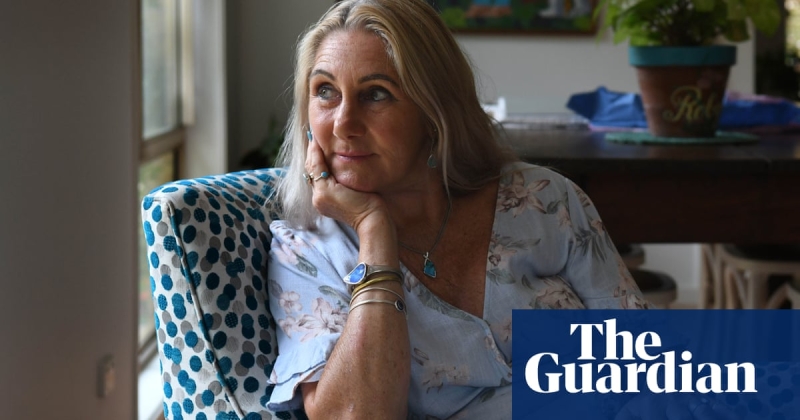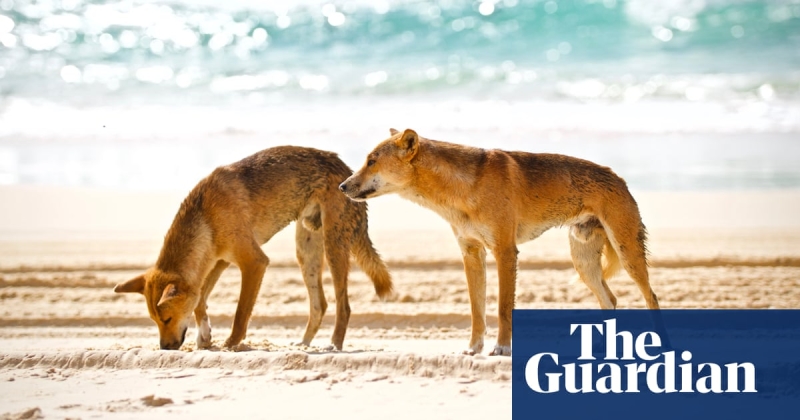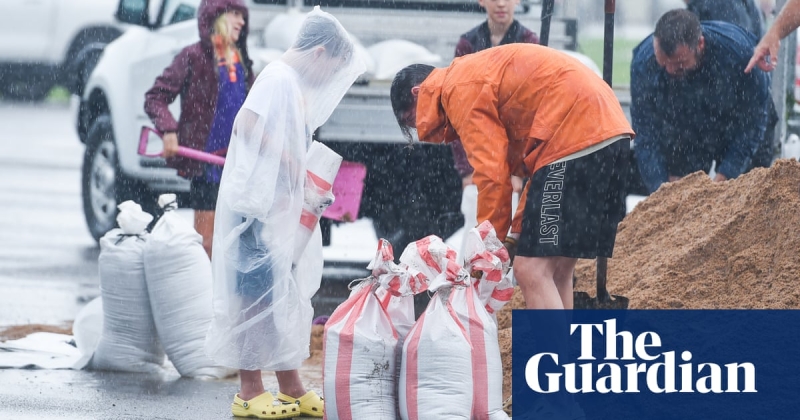A growing number of older women are taking up the nomadic lifestyle, challenging traditional views of ageing. While grey nomad stereotypes persist, many say it’s the best decision they ever made
By Dellaram Vreeland
Seven years ago, Robyn Drayton stood out the front of her home in Newcastle, north of Sydney, and felt overwhelmed with a desire to get out.
“Something came over me. I just burst into tears,” Drayton, now 63, says. “I’d done a lot of travelling overseas and had a caravan and knew it was time.
“I told my three boys I’d see them in a year, but then I never came home.”
She was on the road for almost six years, travelling to some of the most remote parts of Australia. Her guide was Australian Bush Pubs, a coffee table book by Craig Lewis and Cathy Savage, which she used as an itinerary and keepsake, marking those she visited off on a list. “Whenever I got to the pub, I had the publican sign the book,” she says.
From Cape York to the south coast of Western Australia, along the Oodnadatta Track and the Gibb River Road, Drayton drove with her beloved 13-year-old Shetland sheepdog, Porto, in the passenger seat. The experience “was over and above my expectations,” she says.
Drayton is one of a growing number of older women adopting nomadic lifestyles on Australia’s roads. Recent research from the University of Technology Sydney found women were challenging traditional views of ageing, travelling solo around the country in search of adventure, personal growth and new beginnings.
PhD candidate Margaret Yates interviewed 29 solo female travellers to explore their motivations and experiences. Most were over 60 and described themselves as retired.
Yates says the women told her they loved the freedom, independence, and autonomy afforded when travelling alone. The interviews revealed women who had subverted societal expectations of how women should live and age, instead showing older women growing in self-confidence.
“They love going to new places, doing new things and meeting new people,” Yates says. “They were in awe of how big, beautiful and diverse the country is. They grew in confidence dealing with any situation and travelling and felt healthier because of a less stressful lifestyle.”
Caravan sales in Australia spiked in 2021 with registrations jumping 4.2%. Some of this may be a matter of practicality, as the housing crisis causes many to opt for a more transient lifestyle out of necessity.
But Yates says the Covid pandemic also prompted people to reassess their priorities, fuelling a desire for meaningful experiences over material possessions.
She says generational trends of increased financial independence and improved healthcare – including telehealth options – opened doors for women to travel solo.
There is no firm data to back up Yates’s suspicion of an increasing trend – only a rise in membership to social media groups dedicated to solo women caravanning around Australia. It’s possible some of those members are just “travelling vicariously”, she says.
The community network, both online and off, is a significant part of the experience, Yates says. Her research found that many solo female travellers developed informal networks at campgrounds and rest stops, sharing tips, stories and support.
While the women who spoke to Yates say they generally felt safe, challenges including vehicle breakdowns, communication failures and the isolation of remote areas did cause minor hitches in the road. The stereotypes of both grey nomads and being older women also follow them.
Before Drayton set out across the Nullarbor, she pulled her caravan in for a service in Port Lincoln. “It’s important to know your vehicle and be able to stand up for yourself,” she says. “I was having this conversation [with the mechanic] who tried to rip me off big time. He ended up saying: ‘oh, all you grey nomads are rich anyway’.
“I said, ‘how dare you have that attitude’. I’ve met lots of women on the road and everyone has their own story to tell. Some are fleeing domestic violence, some are widows or are divorced or don’t have a home.”
One of the study participants, Vivian*, who asked that her real name not be used, has been on the road for nine years. It has brought some tough lessons.
“If you are in a situation where you’re in the middle of nowhere and you get a flat tyre and there’s nobody about, you go, well, I’ve got to deal with it,” she told the study authors. “If I don’t deal with it, I’m stuck here. I’ve learned a lot about myself, my weak points and my strong points as well.”
Now in her mid-60s, Vivian says travelling around Australia has been the best choice she has ever made.
“I knew it wouldn’t be easy and I knew there’d be hurdles and tough times,” she says. “That probably made me even more determined.”
Drayton says the opportunity to travel solo provided the chance to reflect on herself, her family, and what she wanted to achieve in her life.
She’s set up in Nelson Bay, north of Newcastle, for the time being, but says she’s looking forward to her next adventure.
“I think women are more adventurous and want to get out and enjoy themselves later in their lives,” she says.





